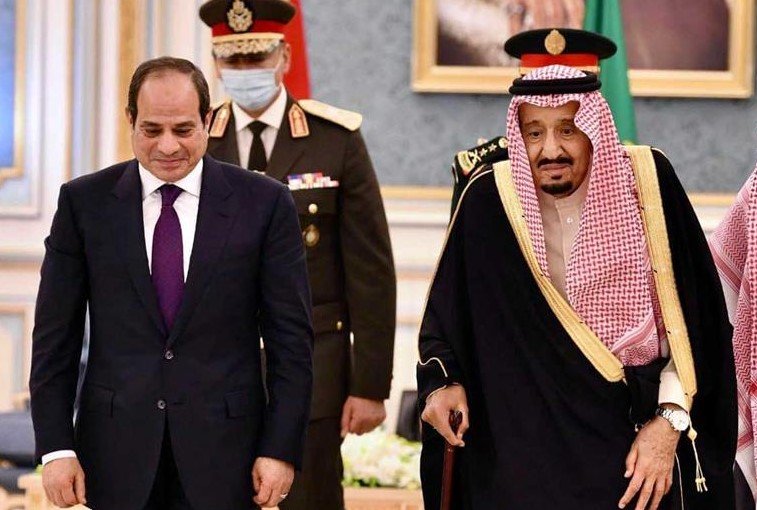Egyptian President Abdel Fattah al-Sisi met with Bahrain’s Crown Prince and Prime Minister Salman bin Hamad Al Khalifa in Cairo on September 3, 2025. The leaders focused on strengthening bilateral relations, signing new agreements, and aligning on regional challenges like the Gaza crisis.
This high level visit highlights growing cooperation between the two nations amid tense Middle East dynamics. Both sides aim to enhance trade, investment, and joint efforts for stability.
Key Agreements Signed
During the meeting, Egypt and Bahrain inked eight memorandums of understanding. These cover areas such as investment, industry, trade, culture, and sustainable development.
The deals aim to boost economic ties and create new opportunities for businesses in both countries. Officials from Cairo and Manama oversaw the signing, marking a step forward in their partnership.
Prime Minister Mostafa Madbouly hosted the Bahraini delegation, emphasizing the need for faster project implementation. This comes as Bahraini investments in Egypt hit about 450 million dollars in 2024, spread across more than 237 companies.
- Investment promotion between the two nations’ authorities.
- Industrial cooperation to support manufacturing growth.
- Trade enhancements for better market access.
- Cultural exchanges to strengthen people to people links.
- Sustainable development projects focused on green initiatives.
These pacts build on recent forums where private sectors from both sides explored new ventures.

Talks on Regional Challenges
The leaders discussed pressing regional issues, including the ongoing Gaza conflict. They rejected any forced displacement of Palestinians and called for immediate reconstruction in the area.
Sisi and Salman stressed the importance of a ceasefire, prisoner releases, and ending humanitarian suffering. They supported a two state solution with an independent Palestine based on 1967 borders, with East Jerusalem as its capital.
This alignment reflects shared views on achieving lasting peace. The meeting also touched on broader Middle East stability, with Egypt praising Bahrain’s role in regional coordination.
Both nations agreed to coordinate stances on these matters, drawing from their historical ties. Recent events, like joint efforts in Arab summits, show their commitment to collective action.
Economic and Trade Boost
Economic discussions took center stage, with a focus on increasing trade and investments. Bahrain’s investments in Egypt have grown steadily, reaching key sectors like real estate and services.
The Egyptian Bahraini Business Forum in Cairo highlighted opportunities for private sector involvement. Finance ministers from both sides urged businesses to seize these chances amid a landmark shift in relations.
| Sector | Bahraini Investment (2024) | Key Projects |
|---|---|---|
| Real Estate | 150 million dollars | Housing developments |
| Manufacturing | 100 million dollars | Industrial parks |
| Services | 120 million dollars | Tech and tourism hubs |
| Others | 80 million dollars | Trade initiatives |
This table shows the breakdown of recent investments, which support job creation and growth. Trade volumes between the two countries rose by 15 percent in the past year, driven by new agreements.
Leaders also explored ways to accelerate joint projects that benefit citizens. This includes tourism ties, with plans for more direct flights and cultural events.
Egypt’s role as a regional hub complements Bahrain’s financial strengths, creating win win scenarios.
Broader Implications for the Region
The visit underscores Egypt and Bahrain’s push for stronger Arab unity. It follows similar high level talks, like those with Qatar and Jordan, aimed at addressing shared challenges.
In a phone call earlier, Bahrain’s King Hamad bin Isa Al Khalifa and Qatar’s Amir discussed boosting ties, showing a pattern of regional cooperation. These efforts come amid global shifts, including economic forums in Asia involving Arab leaders.
For Egypt, this strengthens its position in Middle East diplomacy. Bahrain benefits from Egypt’s large market and strategic location.
Analysts see this as a positive move against instability, with potential for more joint initiatives in security and development.
The leaders expressed pride in their fraternal bonds, pledging to build on them for mutual prosperity.
Looking Ahead
Future cooperation could expand to defense and technology, based on recent patterns. Both nations have participated in joint military exercises, enhancing their readiness.
With the Middle East facing ongoing tensions, such partnerships offer a path to stability. The agreements signed provide a framework for sustained growth.
This visit sets the stage for more frequent exchanges, potentially leading to summits on broader Arab issues.
Share your thoughts on how these ties might shape regional peace. What other collaborations would you like to see? Comment below and spread the word.
